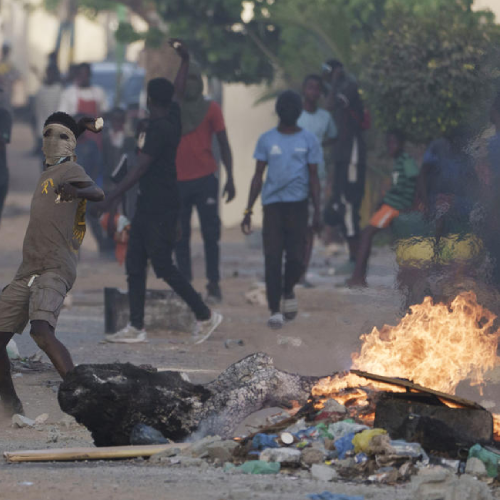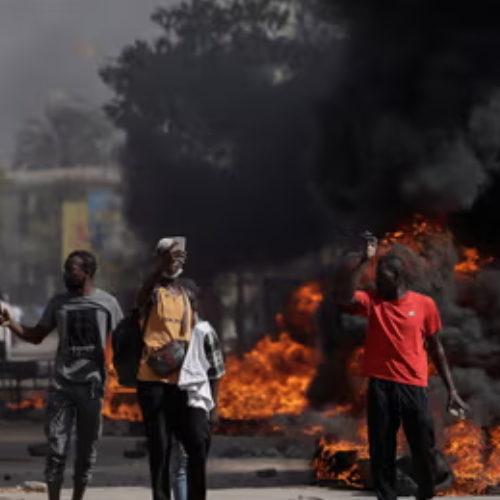Senegal, known for its relative stability in a turbulent region, witnessed its first major wave of unrest on February 9th, 2024. Clashes erupted between security forces and protesters angered by the postponement of the presidential election, originally scheduled for February 25th. This move, pushed by President Macky Sall and endorsed by parliament, has ignited concerns about democratic backsliding and potential instability.

The decision to delay the polls by eight months, extending Sall's mandate, was met with fierce opposition. Critics accuse the President of manipulating the system to cling to power. The opposition coalition, Yewwi Askan Wi, denounced the move as "a coup d'état disguised as a legal maneuver."
Protests erupted in the capital, Dakar, and spread to other cities. Crowds chanted slogans against Sall, calling him a "dictator" and demanding democratic elections. Security forces responded with tear gas and water cannons, leading to injuries and arrests. Images of clashes dominated social media, fueling further outrage and calls for accountability.
Fueling the fire is the context of recent coups in West Africa, raising fears that Senegal, once considered a beacon of democracy, could follow suit. International observers, including the US and the European Union, have expressed concern about the lack of transparency and urged dialogue to resolve the crisis.
The core of the dispute lies in a new electoral law introduced by Sall's government, which opposition groups claim unfairly disadvantages them. The law restricts the number of candidates and imposes new filing fees, making it harder for smaller parties to compete. This, coupled with the rushed nature of the postponement, has eroded trust in the electoral process.
President Sall, however, defends the delay, citing technical issues with voter registration cards and the need for a more inclusive process. He maintains his commitment to holding transparent elections in December 2024.
The coming weeks will be crucial. The Constitutional Court is expected to rule on the legality of the postponement, while the opposition continues to mobilize protests and explore legal challenges. The international community is watching closely, urging all parties to engage in peaceful dialogue and uphold democratic principles.
Whether Senegal can navigate this crisis peacefully and return to a credible electoral process remains to be seen. The events of February 9th serve as a stark warning of the simmering tensions and the potential for further unrest if the concerns of the people are not addressed.

